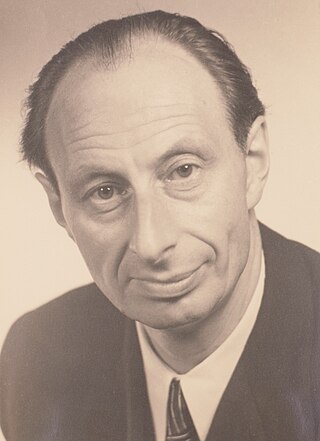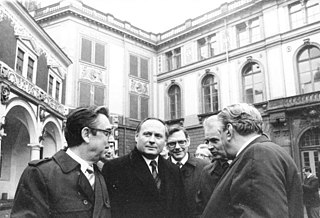
Harry Weibel (born 20 June 1946) is a German historian. His main topics are neo-Nazism, right-wing extremism and antisemitism in the GDR and racism in Germany from 1945 to the present.

Harry Weibel (born 20 June 1946) is a German historian. His main topics are neo-Nazism, right-wing extremism and antisemitism in the GDR and racism in Germany from 1945 to the present.
Born in Lörrach, Waibel comes from a working-class family. He graduated in 1962 with mittlere Reife and then completed an apprenticeship as an industrial clerk. After his discharge from the Bundeswehr he worked in different companies as a commercial clerk. According to his own statements he took part in actions of the extra-parliamentary opposition in Lörrach in the Republikanischer Club and in Basel and was active in 1969 against the NPD Baden-Württemberg, which had been elected to the Baden-Württemberg State Parliament since 1968.
Via the Zweiter Bildungsweg , Waibel began a Teacher training at the Pädagogische Hochschule Freiburg . [1] As a member of the Sozialistisches Büro and the Sozialistischer Bund (1962 ) he was politically active in Freiburg im Breisgau, among other things also in favor of squatting. Waibel wrote for Alternativpresse "Sumpfblüte" and "Links unten".
He continued his studies at the Free University of Berlin and finished them with a diploma in education. [1] In 1993 he was awarded a doctorate by Wolfgang Benz at the Center for Research on Antisemitism of Technische Universität Berlin with a study on neo-Nazism, antisemitism and racism in the GDR under the title Rechtsextremisten in der DDR bis 1989. Both courses of study and the doctorate were financially supported by the union's own Hans-Böckler-Stiftung. [2]
Waibel researches in the archives of the Stasi Records Agency and the German Federal Archives (SAPMO) on racism in the GDR.
He lives and works as a freelance journalist and historian in Berlin.
In his book Rechtsextremisten in der DDR bis 1989, Waibel argues, among other things, that the authoritarian structure of the GDR was particularly effective against young people and was an essential prerequisite for young people to adopt xenophobic and profascist attitudes. [3] Bureaucracy and centralism had been the ideal breeding ground for right-wing extremist attitudes. The GDR leadership had created an authoritarian state that made it easy for right-wing extremists to find social connections. [4]
In 2011 Waibel published the book Diener vieler Herren. [5] Critics note that the early entry of young people into the NSDAP does not allow any conclusions to be drawn about their actual later attitudes.[ citation needed ]
Emil Alfred Fritz Lange was a German communist politician and resistance fighter during the Nazi era. Later Lange was Minister for Popular Education in the German Democratic Republic (GDR).

Bernhard Fisch was a German writer.

Günter Kochan was a German composer. He studied with Boris Blacher and was a master student for composition with Hanns Eisler. From 1967 until his retirement in 1991, he worked as professor for musical composition at the Hochschule für Musik "Hanns Eisler". He taught master classes in composition at the Academy of Music and the Academy of Arts, Berlin. He was also secretary of the Music Section of the Academy of Arts from 1972 to 1974 and vice-president of the Association of Composers and Musicologists of the GDR from 1977 to 1982. Kochan is one of eleven laureates to have been awarded the National Prize of the GDR four times. In addition, he received composition prizes in the US and Eastern Europe. He became internationally known in particular for his Symphonies as well as the cantata Die Asche von Birkenau (1965) and his Music for Orchestra No. 2 (1987). His versatile oeuvre included orchestral works, chamber music, choral works, mass songs and film music and is situated between socialist realism and avant-garde.

Willi Ludwig August Rinow was a German mathematician who specialized in differential geometry and topology. Rinow was the son of a schoolteacher. In 1926, he attended the Humboldt University of Berlin, studying mathematics and physics under professors such as Max Planck, Ludwig Bieberbach, and Heinz Hopf. There, he received his doctorate in 1931. In 1933, he worked at the Jahrbuch über die Fortschritte der Mathematik in Berlin. In 1937, he joined the Nazi Party. During 1937—1940, he was an editor of the journal Deutsche Mathematik. In 1937, he became a professor in Berlin and lectured there until 1950. His lecturing was interrupted because of his work as a mathematician at the Oberspreewerk in Berlin from 1946 to 1949.
Johann Wilhelm Fück was a German Orientalist.
Ilko-Sascha Kowalczuk is a German historian and author. His work is focused on the German Democratic Republic and its Ministry for State Security.
Hermann Weber was a German historian and political scientist. He has been described as "the man who knew everything about the German Democratic Republic".
Hansjürgen Matthies was a German pharmacologist and neuroscientist.
Marlies Deneke is a German politician.
Mario Keßler is a German historian.
Gerhart Hass was a German historian. His approach reflected the Marxist prism through which East Germany's historical establishment viewed their subject. He worked at the History Institute, part of the Berlin based (East) German Academy of Sciences and Humanities, where from 1974 he was a professor. His work concentrated on the History of Fascism in Europe and the Second World War.
Rudolf Neuhaus was a German conductor.
Wolfgang Lesser was a German composer and music official of the DDR.

Helmut Koch was a German conductor, choir leader, composer, and academic teacher. He was recording manager for the Berliner Rundfunk from 1945, where he founded the Solistenvereinigung Berlin, the Kammerorchester Berlin and the Großer Chor des Berliner Rundfunks. He conducted a recording of Monteverdi's L'Orfeo in 1949, and later also contemporary classical music by composers including Hanns Eisler, Fritz Geißler, Ernst Hermann Meyer and Ruth Zechlin. He was professor at the Hochschule für Musik "Hanns Eisler" from its beginning. After working as a regular guest conductor at the Staatsoper Berlin, he became Generalmusikdirektor. He was the first conductor of the Berliner Singakademie in East Berlin, and held the position until his death.
Rudolf Kötzschke was a German historian who founded the Seminar for Regional History and Settlement Studies in Leipzig, the first regional history institution at a German university.

Gerhard Wolfram was a German dramaturge, theatre director and theatre artistic director.

Günther Deicke was a German poet and journalist.
The Leipzig Beat Revolt, in German also called Leipziger Beatdemo, Beatkrawalle or Beataufstand, took place on 31 October 1965 in Leipzig-Mitte. The demonstration was an expression of youth emancipation in the GDR, directed against the state ban on beat music and numerous beat groups. The main reason for the demonstration was the ban imposed ten days earlier on 54 of the 58 registered Leipzig bands, including the popular band Butlers. The demonstration was violently broken up by the Volkspolizei and the Stasi immediately after the start. Of the 264 demonstrators arrested, 97 were deployed for up to six weeks on “supervised work” in the Kitzscher and United Schleenhain coal mine. The Leipzig Beat Demo was the largest non-approved demonstration in the GDR after the events of 17 June 1953 and, along with the events of 7 October 1977 on Berlin's Alexanderplatz, remained unique in this form until autumn 1989.

Gunter Rettner was a German politician and functionary of the Free German Youth (FDJ) and the Socialist Unity Party (SED).

Werner Titel was a German politician and party functionary of the Democratic Farmers' Party of Germany (DBD).
{{cite book}}: |work= ignored (help)